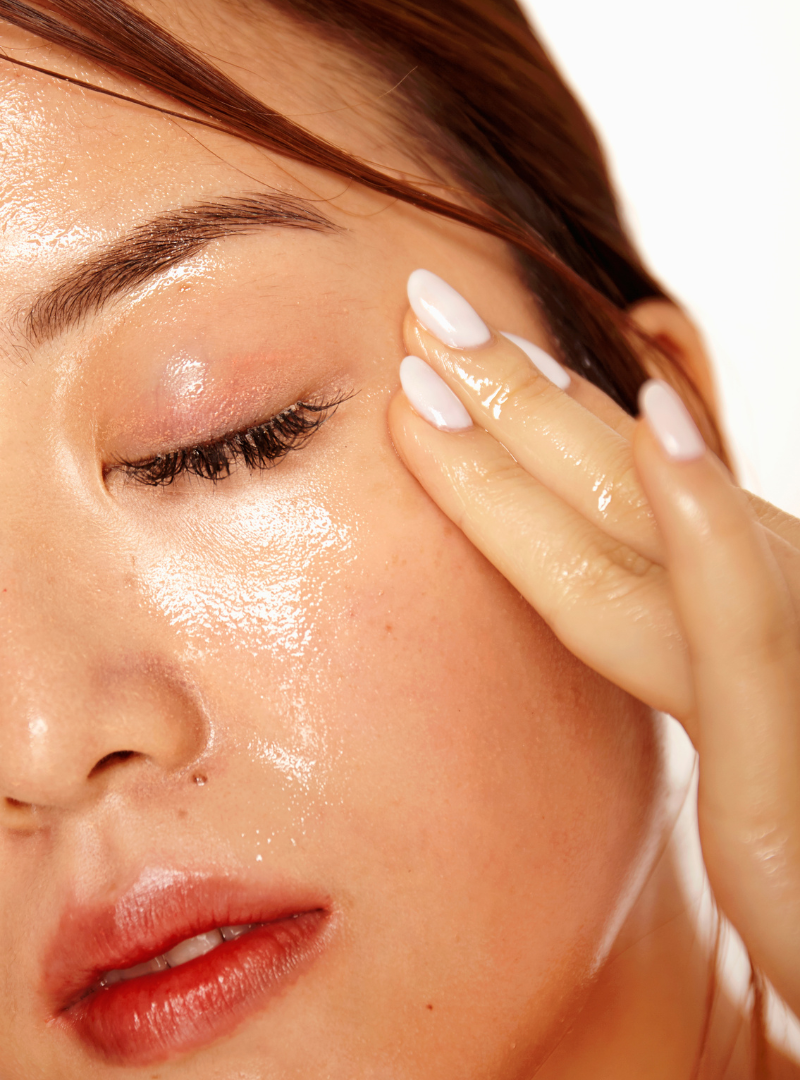What is Inflammaging?
Inflammaging refers to a persistent, subclinical inflammatory state that arises with age and contributes to tissue deterioration and age-related diseases. In the skin, this phenomenon manifests as a gradual breakdown of structural proteins like collagen and elastin, impaired skin barrier function, and a dull or uneven skin tone.
Unlike acute inflammation, which is protective and resolves once healing occurs, chronic inflammation persists at low levels without overt symptoms, damaging cells over time.
Mechanism of Inflammaging in the Skin
Several biological processes contribute to inflammaging:
Senescent Cells: With age, skin cells enter a state of senescence. These cells no longer divide but remain metabolically active and secrete pro-inflammatory cytokines, known as the senescence-associated secretory phenotype (SASP).
Oxidative Stress: UV exposure, pollution, and metabolic processes generate reactive oxygen species (ROS), which trigger inflammatory responses and DNA damage.
Skin Microbiome Imbalance: Dysbiosis can activate innate immune responses, perpetuating chronic inflammation.
Mitochondrial Dysfunction: As mitochondria age, they release damage-associated molecular patterns (DAMPs), further stimulating inflammation.
External and Internal Triggers
Environmental Factors: UV radiation, air pollutants, and cigarette smoke increase ROS production and inflammatory signaling.
Lifestyle Factors: Poor diet, sleep deprivation, and chronic stress can upregulate inflammatory mediators.
Intrinsic Aging: The natural decline in immune regulation and cellular repair mechanisms with age predisposes the skin to inflammatory dysregulation.
Consequences of Inflammaging on the Skin
Collagen Breakdown: Chronic inflammation upregulates matrix metalloproteinases (MMPs), which degrade collagen and elastin.
Delayed Wound Healing: Inflammatory markers impair fibroblast and keratinocyte function.
Increased Sensitivity: Barrier impairment leads to transepidermal water loss and heightened reactivity to irritants.
Hyperpigmentation: Inflammation can stimulate melanogenesis, resulting in uneven skin tone.
How to Mitigate Inflammaging
Topical Antioxidants: Ingredients like vitamin C, resveratrol, and niacinamide help neutralize ROS and reduce oxidative damage.
Barrier Support: Ceramides, fatty acids, and humectants maintain skin hydration and integrity.
Anti-inflammatory Actives: Botanical extracts such as green tea polyphenols and centella asiatica have been shown to reduce inflammatory markers.
Photoprotection: Daily use of broad-spectrum sunscreen is critical to minimize UV-induced inflammaging.
Lifestyle Choices: A diet rich in polyphenols and omega-3 fatty acids, adequate sleep, and regular exercise support systemic and cutaneous resilience.




